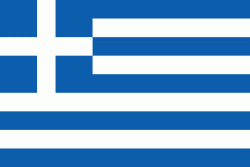Epanomi (Epanomí)
Epanomi has a long, historic path as it is the second oldest establishment in Macedonia (Greece) after Angelochori (as archaeologist Theocharis Pazaras indicated with his work) since the area of Epanomi has been inhabited since the neolithic period. According to the statistics of Vasil Kanchov ("Macedonia, Ethnography and Statistics"), 2.300 Greek Christians lived in the village in 1900. The town circulates its economy on tourism and farming, as it is well known among Greeks for its coasts and organized beautiful beaches (awarded annually the blue flag) easily approached from Thessaloniki. It is also known and visited for its tradition in good wine and tsipouro (a strong distilled alcoholic beverage made by fermentation of grape pomace).
The local football team Anagennisi Epanomi F.C. has recently played in the second division in Greece.
Stavros Sarafis footballer of PAOK and the National Team of Greece was from Epanomi.
Epanomi is connected to IKEA on the east side of Thessaloniki through line 69 of the Thessaloniki Urban Transport Organization (OASTH) and its sub-lines. From IKEA there are the lines 2K and 3K that connect the area with the center of Thessaloniki. In addition, line 77 connects Epanomi with Nea Michaniona which also belongs to the municipality of Thermaikos. An exception is the summer line 77H that connects the center of Epanomi with Potamos beach with itineraries from morning until late afternoon.
In summer, the express line 70 that connects Epanomi - through the center of Thessaloniki - with the New Railway Station on the west side of the co-capital also operates. The journey takes one hour with minimal stops at the most important points.
Map - Epanomi (Epanomí)
Map
Country - Greece
 |
 |
| Flag of Greece | |
Greece is considered the cradle of Western civilization, being the birthplace of democracy, Western philosophy, Western literature, historiography, political science, major scientific and mathematical principles, theatre and the Olympic Games. From the eighth century BC, the Greeks were organised into various independent city-states, known as poleis (singular polis), which spanned the Mediterranean and the Black Sea. Philip II of Macedon united most of present-day Greece in the fourth century BC, with his son Alexander the Great rapidly conquering much of the ancient world, from the eastern Mediterranean to the North Western parts of India. The subsequent Hellenistic period saw the height of Greek culture and influence in antiquity. Greece was annexed by Rome in the second century BC, becoming an integral part of the Roman Empire and its continuation, the Byzantine Empire, which was culturally and linguistically predominantly Greek.
Currency / Language
| ISO | Currency | Symbol | Significant figures |
|---|---|---|---|
| EUR | Euro | € | 2 |
| ISO | Language |
|---|---|
| EN | English language |
| FR | French language |
| EL | Greek language |















